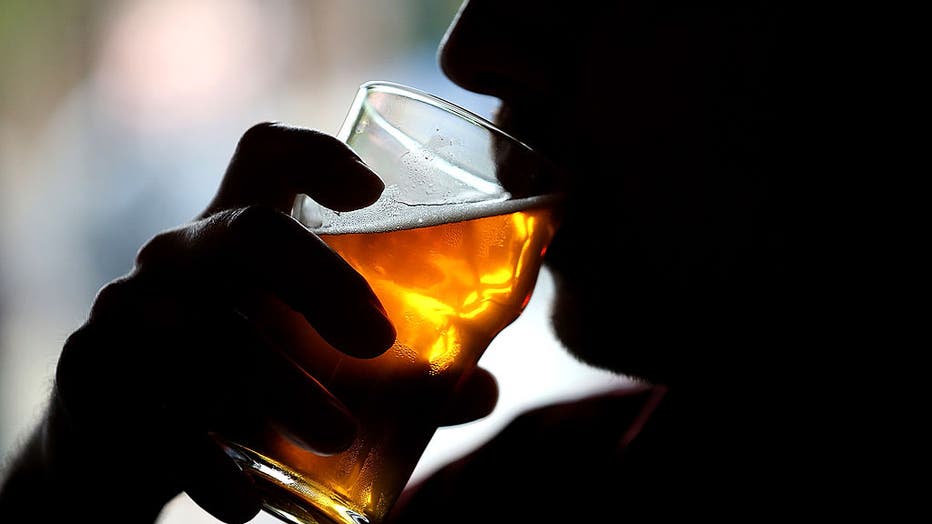Study links alcohol intake to higher pancreatic cancer risk

U.S. surgeon general wants cancer warnings on alcohol
The U.S. Surgeon General Vivek Murthy is suggesting that alcoholic beverages should have labels that warn people of the risk of cancer. LiveNOW's Austin Westfall discusses it further with Dr. Erika Schwartz, a patient advocate and prevention expert.
Pancreatic cancer is one of the most lethal cancers—and now, new research suggests even modest alcohol consumption may contribute to its risk.
An international consortium of researchers analyzed individual-level data from 30 cohort studies across four continents and found that each 10-gram daily increase in alcohol intake raised the risk of pancreatic cancer by about 3%.
The findings, published in PLOS Medicine on May 20, 2025, are based on 2.5 million people tracked for a median of over 15 years.
The risk increase held true even after adjusting for smoking, body weight, diabetes, and other variables—and was similar for both men and women. Notably, the study found no link between wine consumption and cancer risk, but a clear association with beer and spirits.
How does alcohol affect pancreatic cancer risk?
What we know:
Researchers found a consistent dose-response relationship: the more alcohol someone consumed, the higher their risk. Those who drank 30–60 grams per day (roughly 2–4 standard drinks) had a 12% higher risk than light drinkers, while those who consumed over 60 grams daily saw a 32% higher risk.
The study also found:
- No major differences between men and women in risk levels.
- No significant impact from smoking status—the alcohol risk was present even among never-smokers.
- Stronger associations in Europe and North America than in Asia, potentially due to genetic and cultural differences in drinking habits.
- Beer and liquor were linked to increased risk, while wine was not.
What we don't know:
The study couldn’t determine the effects of lifetime drinking patterns, including binge drinking or alcohol use in early adulthood.

A man drinks a glass of beer. A new international study has linked alcohol consumption—especially beer and spirits—to an increased risk of pancreatic cancer. (Photo by Justin Sullivan/Getty Images)
It also didn’t include enough participants from Asia to fully assess regional differences. Researchers noted that genetic factors influencing alcohol metabolism—especially common in Asian populations—could affect risk, but were not measured.
The backstory:
While alcohol has long been classified as a Group 1 carcinogen by the International Agency for Research on Cancer, its link to pancreatic cancer has been less clear. Prior studies showed conflicting results, often limited by small sample sizes or inadequate control for smoking.
By the numbers:
This new research overcomes many of those limitations by pooling data from major global cohorts and adjusting for multiple confounding factors. It builds on previous efforts from the Pooling Project on Diet and Cancer and represents one of the largest analyses of alcohol and pancreatic cancer to date.
- 2,494,432 participants included from 30 cohort studies
- 10,067 diagnosed pancreatic cancer cases
- 3% increased risk for every 10 grams of alcohol consumed per day
- Risk for men drinking ≥60g/day: 36% higher than light drinkers
- No increase in risk found for wine drinkers
What's next:
Researchers say these findings support the need for revised cancer prevention guidelines that incorporate alcohol reduction as a strategy to lower pancreatic cancer risk.
They also suggest that future studies should explore genetic factors, lifetime drinking habits, and regional differences to better understand alcohol’s role in pancreatic carcinogenesis.
The Source: This article is based on a peer-reviewed study published in PLOS Medicine on May 20, 2025, titled "Alcohol intake and pancreatic cancer risk: An analysis from 30 prospective studies across Asia, Australia, Europe, and North America." The study was conducted by researchers from the International Agency for Research on Cancer and Harvard T.H. Chan School of Public Health, using pooled data from over two dozen long-term cohort studies.

